
It was only up until the beginning of this year that I suffered from awful stomach issues almost every single day. I remember it starting around my third year of college and sadly turned out to be the norm. I became so used to feeling bloated, gassy and uncomfortable most days of the week, and got stomach aches at random times throughout the day.
I went to school for nutrition, but ironically had the most difficult time figuring out what was going on with my own body. It was frustrating.
It wasn’t hard for me to stay physically active during college. I played competitive sports since I was young and working out continues to be a great stress reliever and start to my day. At the time of these stomach issues, I wasn’t necessarily able to reach the goals I had with fitness because of how my body was reacting to the foods I was eating. In lieu of finding a diet that worked for me and to become more familiar with the many diets people followed for my future career as a dietitian, I experimented with my fair share of diets: high-protein, high-carb, low-fat, vegetarian, low calorie, macro counting (way too stressful) … it seemed like I tried them all and nothing proved to work exceptionally well.
I tried pinpointing which foods gave me symptoms—it didn’t help. The bloating was all too regular, even when I switched up the foods I was eating. I didn’t go see a doctor because what could he/she tell me that I couldn’t figure out for myself? (I wasn’t looking for just a surface-level check-up that most doctors provide. Plus, Western Medicine doesn’t necessarily focus on the nutrition side of things). For months I just lived with the fact I was bloated and there wasn’t anything I could do about it.
Most mornings were great, but as the day went on it would progressively get worse and generally by the end of each day I would be at the peak of feeling bloated and uncomfortable.
At the beginning of 2017 I was approached by a health and wellness company to help promote their 7-day sugar detox. I loved the idea behind resetting your body from the toxic effects of added sugars in packaged foods and quickly got on board. November/December 2016 was also around the time I started getting more into podcasts, specifically Bulletproof Radio, and became better educated on the benefits of eating a higher [healthy] fat diet.
I received the results back from the Pinnertest, a food intolerance test I took to gauge the foods I was having a hard time digesting. At this point, I was ready to try anything that would tell me the foods I should stay away from. It recognized that I was intolerant to cow’s milk, kidney beans, barley and beef. For the most part, it was spot on detecting the foods that upset my stomach.
Starting the year with an entirely different diet than I was used to actually made me really hopeful. It was the first time I was truly excited to test out a new routine.
Beginning January with the 7-day sugar detox was probably the hardest thing I’ve done in a while. The guidelines were: unlimited veggies, keep fruit to a minimum of 1-2 servings per day and remove all added sugars, including natural sources of sugar like dates, coconut sugar, honey, maple syrup and stevia (I chose all the above, but feel free to be as strict as you’d like on your own detox). It was a little difficult at first finding which foods I could even have that fit those guidelines, but I eventually made it work. Doing a sugar detox like this really puts into perspective how much sugar sneaks its way into so many staple items and helps you understand how to look at food labels by focusing less on the numbers, and more so on the ingredient lists.
Along with taking part in the 7-day sugar detox, significantly upping my healthy fats (i.e. avocados, avocado oil, olive oil, coconut oil, whole eggs, nuts, homemade nut milk, coconut butter, MCT oil), and removing the foods I was shown to be intolerant to on the Pinnertest, I also made the decision to remove cruciferous vegetables (broccoli, cauliflower, brussel sprouts), most legumes (especially garbanzo beans), almonds/almond butter (I noticed I would get bloated immediately after eating), protein powders (a friend recommended I do this because most on the market are highly processed—even vegan powders!), soy (I was eating a lot of tofu), garlic and onion (rich sources of fructans—responsible for giving those sensitive to fructans abdominal pain, discomfort, flatulence and bloating) to see if any of those foods were causing my digestive discomfort. One last major change I implemented was decreasing my portion sizes during meals. I was so used to overloading my plate and feeling obligated to finish every last bite, but that was creating wayyy too much work for my digestive system at one time.
After the first 7 days were up, I noticed quite a few changes. First, there was a huge difference in my taste bud sensitivity. Fruit was sweeter, I didn’t crave sugar nearly as much and I had more energy than before starting the detox. I felt SO good. I also continued the higher fat and elimination diet post-detox because I felt so clear, energized, not bloated, and I even noticed I had more stamina at the gym. It was the first time in years I truly felt better than ever with close to zero upset stomachs/digestive issues.
I realized that I had been eating an excessive amount of protein in my previous diet and that may have partially contributed to my digestion issues. I’d have 1-2 servings of protein powder (vegan) almost every single day for the past 3 years because I was working out and lifting weights, which required more protein to help build more muscle, right? Well, to a certain point. Both whole food sources of protein and protein supplements have advantages and disadvantages and are even digested differently in a lot of people. After removing protein powders, I supplemented with collagen peptides (I like Vital Proteins) because it’s light on my stomach, easily digested, comes from grass-fed pasture-raised cows and has only one ingredient. Benefits include healthy skin, hair, nails, joints, tendons, cartilage and it helps to heal the gut. At first, I was worried about not getting enough protein in my diet, but three weeks into my new regimen, I noticed an increase in my muscle mass. To this day, I continue to take collagen peptides in place of protein powder and would definitely recommend!
List of Foods I Removed:
Dairy (I still have goat cheese every now and then because I don’t feel any symptoms with goat’s milk)
Soy
Garbanzo beans
Kidney beans
Cruciferous vegetables (broccoli, cauliflower, Brussel sprouts)
Garlic
Onions
Almond butter
Protein powders
Carbonated drinks (i.e. kombucha)
Healing my gut was my number one priority at the beginning of the year, so I found and incorporated a probiotic supplement into my daily routine. Probiotics are incredible for the gut; they are the good bacteria we need to survive and stay healthy. They’re shown to offer a multitude of benefits to the body, including improved digestion, helping with healing inflammation, boosting the immune system and producing healthy skin. I use Silver Fern Brand Probiotics.
Overall, the feelings of being bloated all day every day has thankfully subsided and I feel better than I ever have. I owe it to removing the foods I found to have a damaging effect on my gut, eating a higher fat diet, and significantly lowering my sugar intake.
The foods I incorporate now: kombucha from time to time- I love the taste and I’ll only have it in small amounts, broccolini- I’ve found it doesn’t bother my stomach because there’s less florets than regular broccoli, sprouted hummus seems to be fine in small amounts, sprouted almonds are easier for me to digest.
I hope this helps anyone struggling with the same issues. I know how frustrating it can be to not be able to pinpoint the cause of your digestive issues. If this is the case, I recommend finding a dietitian or other health care specialist to decide what may be the contributing factors to YOUR indigestion. Want some more information on the 7-day sugar detox? Click here!
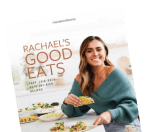


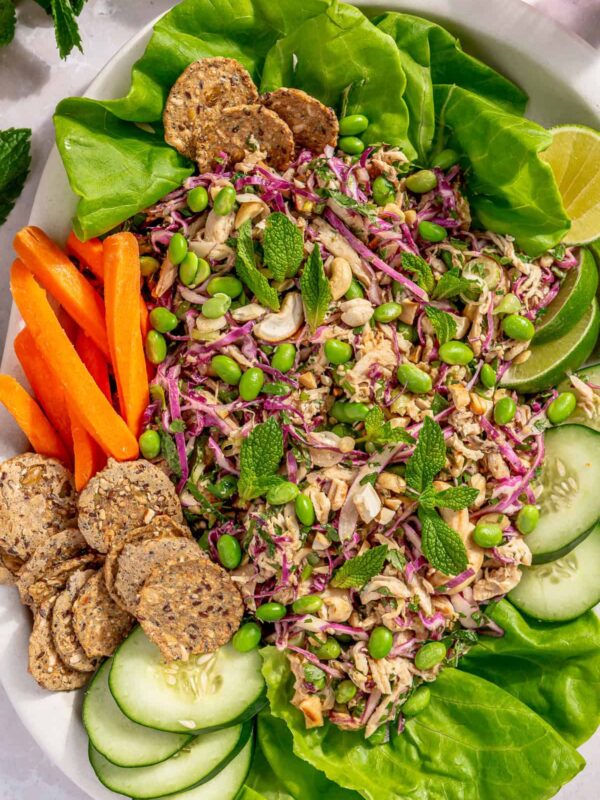
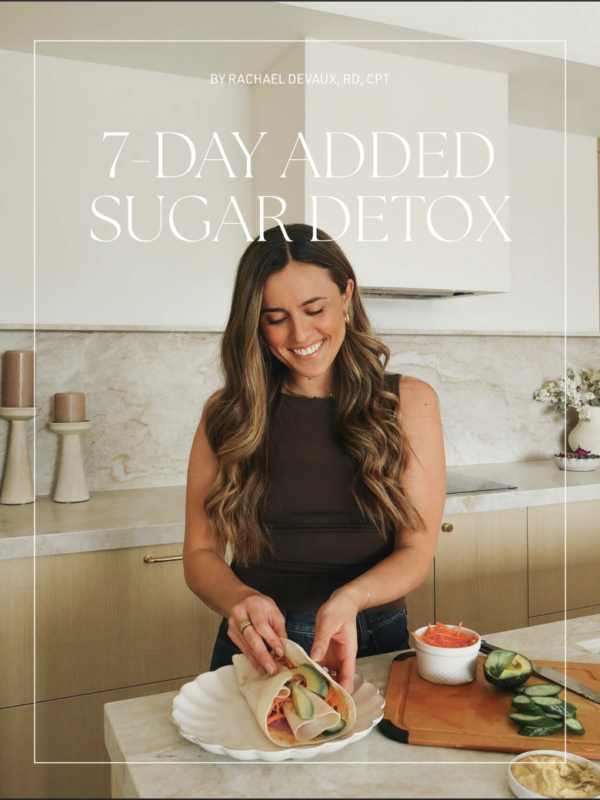
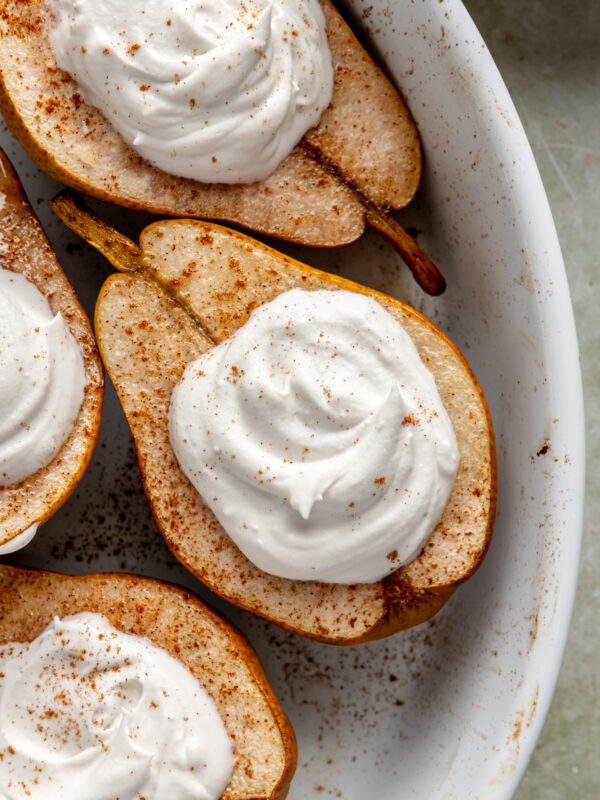







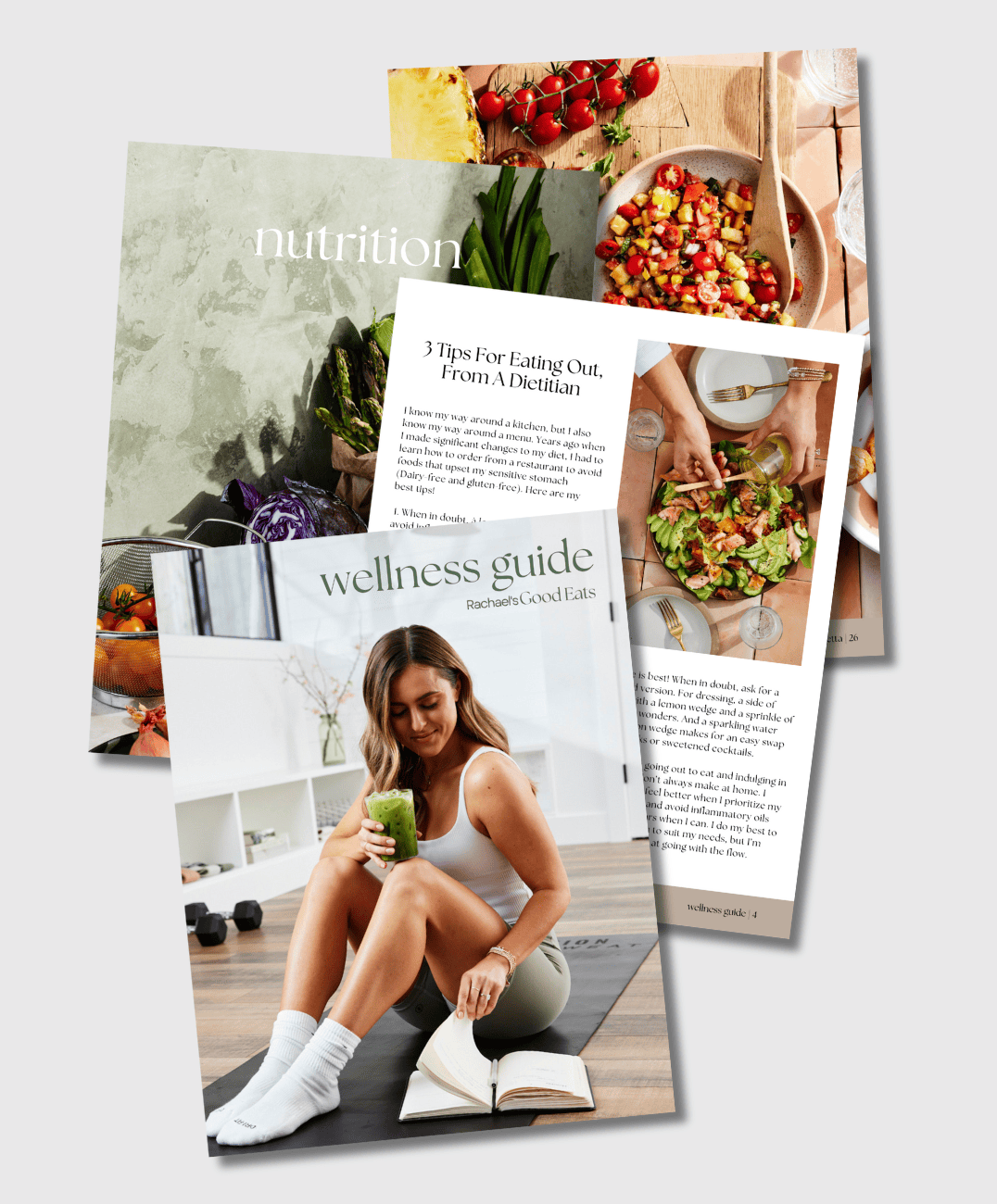
Hi Rachael! I am suffering from some digestive issues that match up very closely to what you described, so I think I am going to give your advice a try! I have tried almost everything else with no luck. I have a high metabolism and I am worried about getting enough fuel—do you recommend cutting out breads/pasta/rice/etc.? I looked at your 7 day sugar detox post, and most of your meals looked very low carb, I wasn’t sure if that was in an effort to reduce the impacts that some carbs could have on digestion, or if that was just how you tend to eat. Thanks for the help!! 🙂
Hey! Low carb is just how I tend to eat since the start of this year and it’s really been working for me! I’ve upped the healthy fats and reduced sugars 🙂
I’ve had similar troubles, but I’ve noticed the same thing! When I removed all the sugar from my diet when I did a 30 day sugar detox, and increased my fat intake, I was feeling soooo much better! Keep it up it’s wonderful to feel good 🙂 I have an amazing zucchini hummus recipe that I love that doesn’t have the beans in it.
Thank you so much for sharing this Rachael!
You described exactly what sounds like my own daily battle with my tummy; I don’t feel so alone/crazy! However, within the last several months, my bloating and pain has increased. Iv’e played around with my diet so much and have been able to pinpoint a lot of trigger foods, but I feel like Im stuck again.
Smoothies have been a huge staple for me since digesting meals and figuring out what will even be “safe” for me to eat is too much to handle sometimes. I stick to a low FODMAP diet and really only use berries and occasionally some cherries if I even do use fruit in my smoothies. Your mention of Almond Butter definitely has me thinking I may need to stop using it for a while, especially since I use it a lot. I know that the protein powder Ive been using is causing upset and I actually am currently waiting for the Vital Protein Peptides from Amazon! And after reading your story, I’m even more excited about trying them!
Ive been so hesitant to try the collagen though because it’s unflavored and the protein powders add that sweetness and flavor that is missing from the fruit and sugary ingredients. Like you, my goal is to eliminate protein powders all together because I KNOW my body does not like them. However, I’m not sure how to achieve the satisfaction from the “chocolate” or “vanilla” flavorings without the added calories and sugar. I was wondering what your thoughts on this were? I was also wondering what you thought about the frozen cauliflower and zucchini. I buy the frozen cauliflower florets from Whole Foods and buy raw zucchini and then freeze it. Is it better for digestion if I steam either of these first, then freeze, or is using the cauliflower straight from the frozen bag the same thing? Or should I just eliminate cauliflower all together?
Im sorry if I bombarded you with questions! I love your blog and follow you regularly for inspiration.
Thank you for all the work you put in to sharing your knowledge!
-Paige
Paige,
Adding vanilla extract, coconut flakes, and/or cacao powder can definitely sweeten your usual smoothies without extra sugar! Yes, steaming the cauliflower and zucchini for about 5-7 minutes first can definitely make it easier on digestion.
I hope that helps!
Great post, and thank you for sharing your story!
I also highly recommend looking at the FODMAP diet. It focuses on avoiding high-sugar fruits and other items that produce excess gas in those with IBS. All of the foods you listed are foods that this diet has identified to be trigger foods through extensive research conducted by the Monash University. http://www.med.monash.edu/cecs/gastro/fodmap/low-high.html
It is not an overestimate to say this diet was life-changing for my stomach issues. I was severely underweight and everything I ate caused me pain. While low-sugar diets helps, there are other foods that I had no idea about (like garlic and onions) that when I removed them from my diet, my gut really started to repair. Kate Scarlata is an RD who does some great posts on the subject with yummy recipes http://blog.katescarlata.com/2014/10/12/digestive-peace-mind/
Just passing along in case anyone finds this as beneficial as I did! I love your message and come from and appreciate you talking about an issue that many shy away from!
XO,
Casey
I needed to read this! i have a question about your macro counting experience. I have been tracking off and on for months now and I am two months from my wedding and don’t want to stop because I don’t want to feel fluffy haha. When you stopped tracking did you notice a difference in muscle definition or anything? I have been having bad stomach issues so I don’t want to additional stress of counting but I’m scared to stop! Sorry this is all over the place. Thanks!
Thank you so much for sharing! I had such a hard time with IBS and I can totally relate to the tummy troubles! So happy you found what works for you. I also found my intolerances and it save me so much! Hope you have the best day and keep doing what you love! You’re such an inspiration! Xo Bree
Ah, thanks Bree that means a lot!! xx
Hi Rachael!!! Thank you for sharing! I too have problems with bloating and swelling. I have eliminated a lot of foods that could possibly trigger but I’m still having this problem. I’m going to research the pinnertest and get to the bottom of my problem. I truly appreciate you sharing your personal story with us! By the way love your account!
-Jeanette
Aw, thanks girl! I wish you luck!
Hi Rachel! This article was super helpful. I am currently suffering from stomach problems and bloating as well. What was the 7-day sugar detox you did? Did you find eating meat affects your gut health at all? The only meat I eat now is chicken. Thanks!
There’s a blog post about my 7-day sugar detox currently on the home screen of my blog– go check it out! No, I haven’t found that eating meat affects my gut health.
Hi Rachael,
Thank you for an amazing post and so much useful information!
I’m on the same page with you (well the previous you) on building body mass, weight lifting etc. (since I am so petite and skinny, I really wanta to look a bit fuller/stronger). I’ve been taking MRM whey isolate every time after I work out. I also throw in a 1-2 scoops of vital collagen in my morning routine. Do you think that’s too much? :/ you noticed your muscle mass increase due to collagen protein or just removing protein powder?
Thank you so much!
All the best,
I noticed that even without the protein I was normally consuming, I was still able to put on muscle mass. Our bodies don’t need excessive amounts of protein.. I would suggest spacing out the collagen and whey throughout the day to give your GI system a break from breaking down all that protein at once. Hope that helps!
Hi Rachael,
This post is so so helpful !! Thank you so much for sharing. Recently (in the past year or so) I have been suffering from bloating, gas, and upset stomach and have been able to pinpoint the cause. I usually eat very healthy, but definitely have a sweet tooth that I give into probably more often than not! Reading this definitely motivates me to do a sugar detox to see if this is a likely cause for my symptoms.
I also read your article on the Pinner Test and was wondering if you highly recommend taking this test or if you felt like you would have found out some of your food intolerances could be found theough the elimination diet? Let me know!
Thanks again for sharing, this was so helpful and relatable.
Lindsay
Lindsay,
I’m so happy this was helpful! You will love how you feel after the sugar detox. I would recommend trying to cut out foods you may find that trigger your GI symptoms first before resorting to the Pinnertest– it’s expensive. I will say though that I had a big feeling I was lactose intolerant even before taking the Pinnertest, but seeing the results written out motivated me to completely cut it out of my diet and I’m so glad I did!
I am SO happy to of found your instagram! I was diagnosed with cancer 3 years ago when I was 20 and I have changed my life completely. ( I have been in remission now:) ) It’s so cool getting new products and recipes from you and hearing your story!
This just made my whole day, than you SO much for sharing!!! <3